You don’t have time for books, we get it. You get through work days in survival mode: work, eat, sleep, repeat. Max reading time is 2 minutes on posts like this. We understand.
However, the holidays are just around the corner. It is time to slow down. It’s also time to make space for books in your days for some alternative fun, inspiration and self-improvement.
If not now, when? Right?
Reading 20 minutes a day keeps your mind sharp and can be a great new year resolution, too.
So take a look at our favourite books and get inspired for reading during the holidays. You will not regret the time spent.
We have listed the books for you from 1 to 9 on a scale from most fun to most practical, and from generic „stuff” to computer science and coding. Still, you can learn a lot from even the most entertaining ones, and enjoy reading even the really practical ones.
No time to walk to the shop to actually get them? Consider choosing the ebook version, and do something for the environment, too. What’s even better, most of these books are available online for free. We’ve included links to help.
Check out the list and download your next great read.
Enjoy!
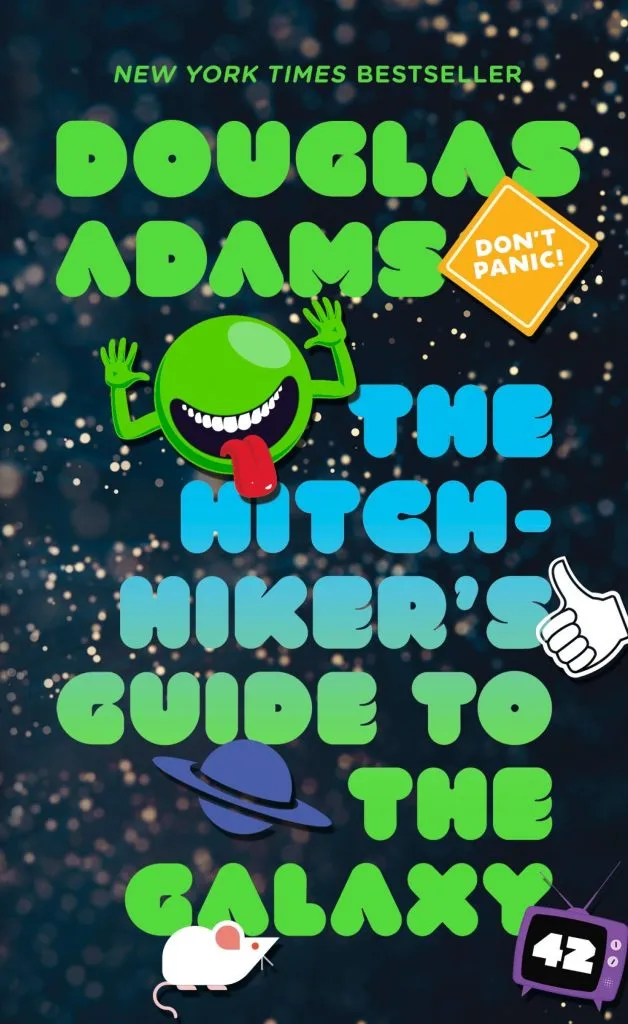
1. The Hitchhiker’s Guide to the Galaxy
Writer: Douglas Adams
Download (free): cubahora
Opening line(s): “Far out in the uncharted backwaters of the unfashionable end of the Western Spiral arm of the Galaxy lies a small unregarded yellow sun. Orbiting this at a distance of roughly ninety-eight million miles is an utterly insignificant little blue-green planet whose ape-descended life forms are so amazingly primitive that they still think digital watches are a pretty neat idea.”
What it’s about: „Seconds before Earth is demolished to make way for a galactic freeway, Arthur Dent is plucked off the planet by his friend Ford Prefect, a researcher for the revised edition of The Hitchhiker’s Guide to the Galaxy who, for the last fifteen years, has been posing as an out-of-work actor.
Together, this dynamic pair began a journey through space aided by a galaxyful of fellow travelers: Zaphod Beeblebrox—the two-headed, three-armed ex-hippie and totally out-to-lunch president of the galaxy; Trillian (formerly Tricia McMillan), Zaphod’s girlfriend, whom Arthur tried to pick up at a cocktail party once upon a time zone; Marvin, a paranoid, brilliant, and chronically depressed robot; and Veet Voojagig, a former graduate student obsessed with the disappearance of all the ballpoint pens he’s bought over the years.”
Why we recommend it: According to The Washington Post Book World it’s “extremely funny . . . inspired lunacy . . . [and] over much too soon”. This is such a must-read classic, we have to put it in the first place.
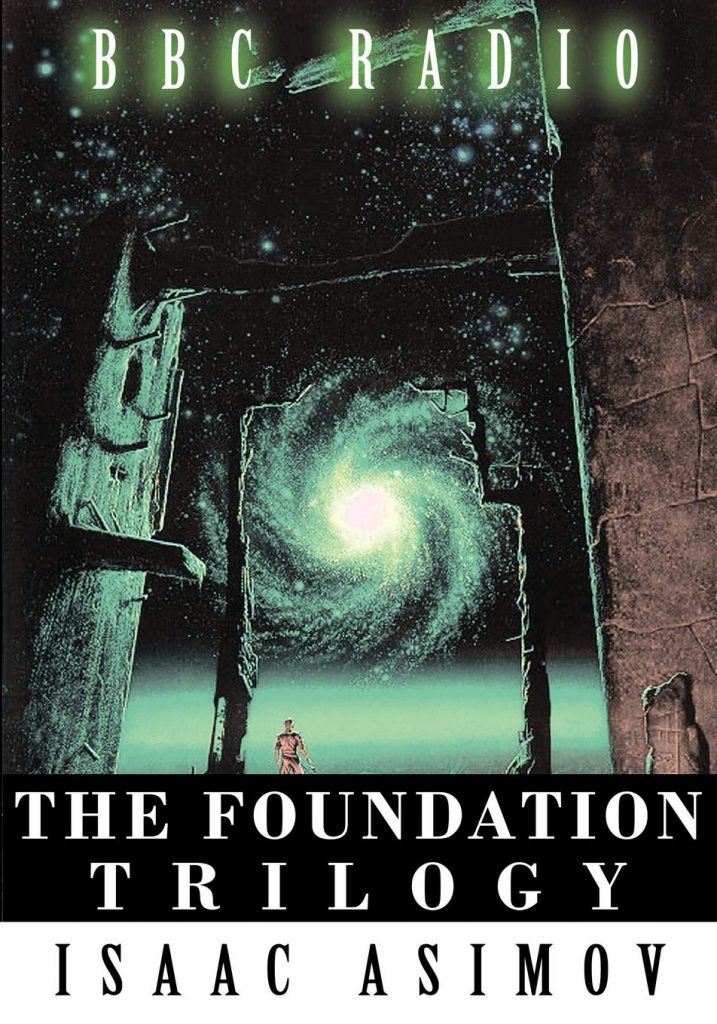
2. Foundation (the trilogy)
Writer: Isaac Asimov
Download (free): archive
Opening line: “HARI SELDON–… born in the 11,988th year of the Galactic Era; died 12,069.”
What it’s about: „For twelve thousand years the Galactic Empire has ruled supreme. Now it is dying. Only Hari Seldon, creator of the revolutionary science of psychohistory, can see into the future—a dark age of ignorance, barbarism, and warfare that will last thirty thousand years. To preserve knowledge and save humanity, Seldon gathers the best minds in the Empire—both scientists and scholars—and brings them to a bleak planet at the edge of the galaxy to serve as a beacon of hope for future generations. He calls this sanctuary the Foundation.
But soon the fledgling Foundation finds itself at the mercy of corrupt warlords rising in the wake of the receding Empire. And mankind’s last best hope is faced with an agonizing choice: submit to the barbarians and live as slaves—or take a stand for freedom and risk total destruction.”
Why we recommend it: According to mastersreview.com „what makes Foundation impressive is how it has anticipated real developments in the following decades, and how much of its fantasized futuristic technologies (force fields, space travel, uncontrolled urban expansion) are still finding their way into science fiction (and science fact) today. This novel holds up as a landmark work, and a standard-setter for the genre’s interaction with both cutting-edge technology and the future of the human race.” According to us: a timeless, complex, yet exhilarating piece of science fiction must-read.
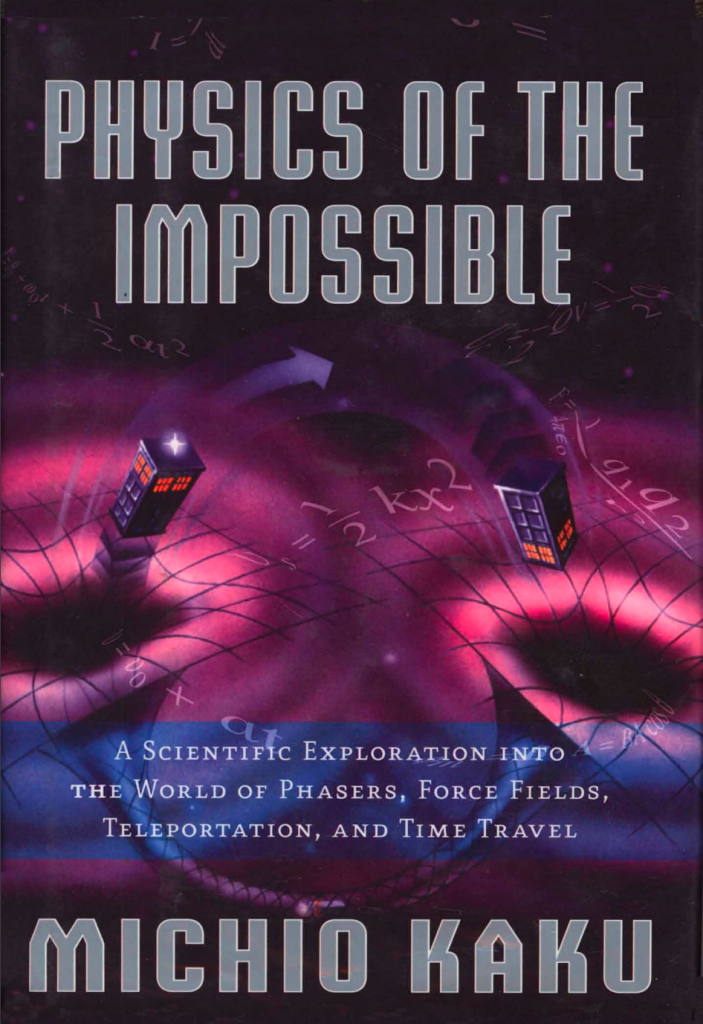
3. Physics of the Impossible
Writer: Michio Kaku
Download (free): yetemonamonew
First line(s): “Shields up!” In countless Star Trek episodes this is the first order that Captain Kirk barks out to the crew, raising the force fields to protect the starship Enterprise against enemy fire. So vital are force fields in Star Trek that the tide of the battle can be measured by how the force field is holding up. Whenever power is drained from the force fields, the Enterprise suffers more and more damaging blows to its hull, until finally surrender is inevitable. So what is a force field?”
What it’s about: „Teleportation, time machines, force fields, and interstellar space ships — the stuff of science fiction or potentially attainable future technologies? Inspired by the fantastic worlds of Star Trek, Star Wars, and Back to the Future, renowned theoretical physicist and bestselling author Michio Kaku takes an informed, serious, and often surprising look at what our current understanding of the universe’s physical laws may permit in the near and distant future. Entertaining, informative, and imaginative, Physics of the Impossible probes the very limits of human ingenuity and scientific possibility.”
Why we recommend it: Because we agree with goodreads.com that it’s „an extraordinary scientific adventure, (and it) takes readers on an unforgettable, mesmerizing journey into the world of science that both enlightens and entertains.”
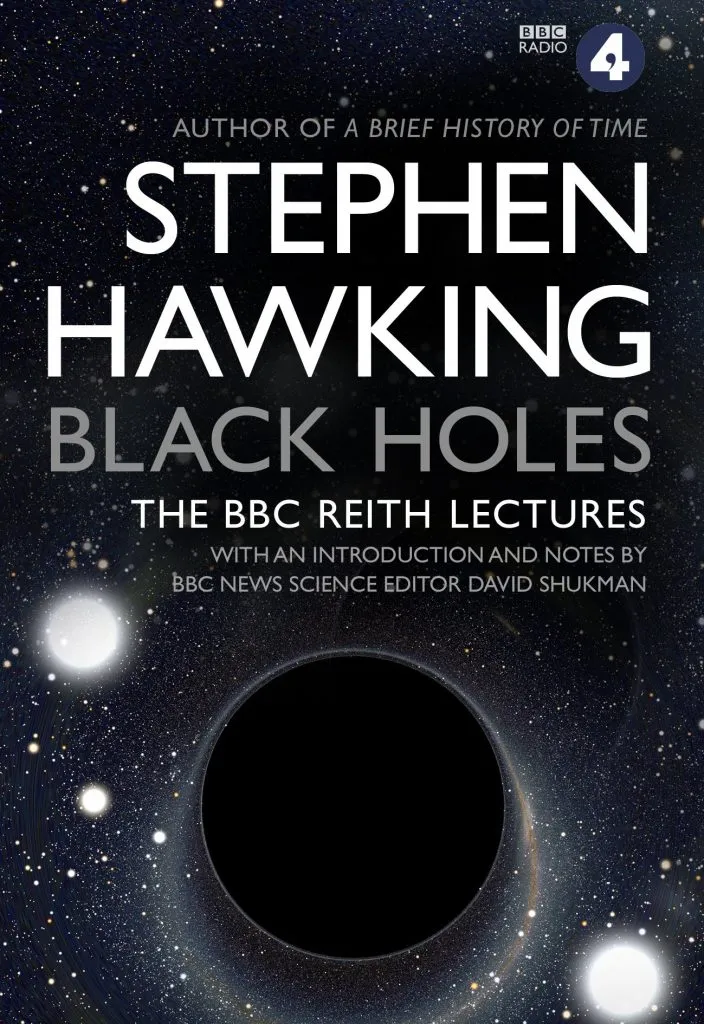
4. Black Holes: The Reith Lectures
Author: Stephen Hawking
Download (buy): amazon
Quote: “In space, no one can hear you scream; and in a black hole, no one can see you disappear.”
What it’s about: „”It is said that fact is sometimes stranger than fiction, and nowhere is that more true than in the case of black holes. Black holes are stranger than anything dreamed up by science fiction writers.” (Stephen Hawking)
In 2016 Professor Stephen Hawking delivered the BBC Reith Lectures on a subject that fascinated him for decades – black holes.
In these flagship lectures the legendary physicist argued that if we could only understand black holes and how they challenge the very nature of space and time, we could unlock the secrets of the universe.”
Why we recommend it: A transcript of two of his lectures, Stephen Hawking’s book about black holes is so short, you can read it in one sitting. It’s also fascinating and makes you want to read more about cosmology. An easy read about an exciting topic in an enjoyable style.
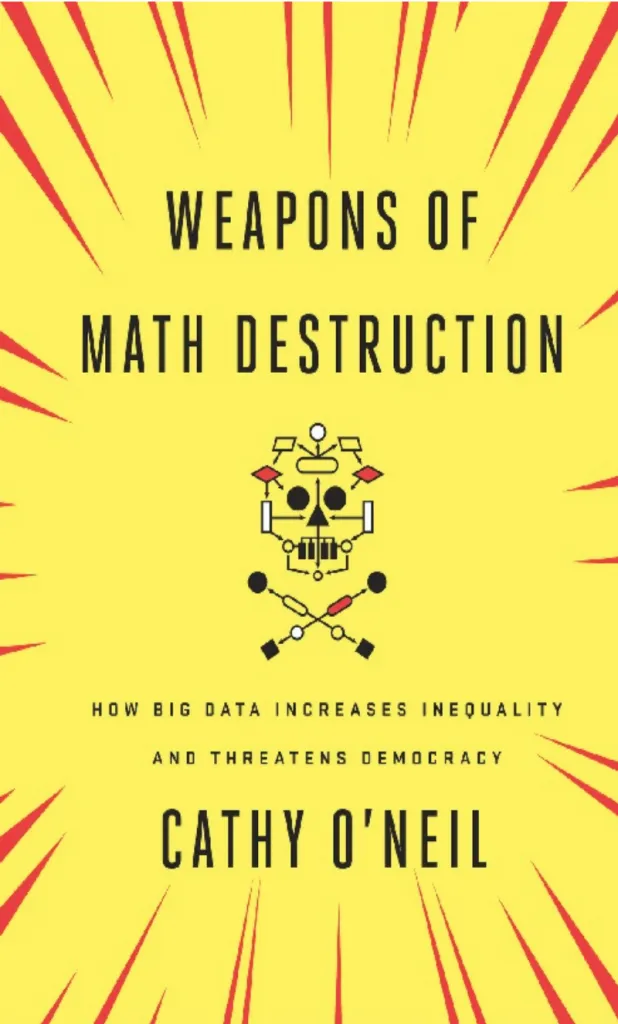
5. Weapons of Math Destruction
Writer: Cathy O’Neil
Download (free): programmer-books
Quote: “Big Data processes codify the past. They do not invent the future. Doing that requires moral imagination, and that’s something only humans can provide. We have to explicitly embed better values into our algorithms, creating Big Data models that follow our ethical lead. Sometimes that will mean putting fairness ahead of profit.”
What it’s about: „We live in the age of the algorithm. Increasingly, the decisions that affect our lives — where we go to school, whether we get a car loan, how much we pay for health insurance — are being made not by humans, but by mathematical models. In theory, this should lead to greater fairness: Everyone is judged according to the same rules, and bias is eliminated.
But as Cathy O’Neil reveals in this urgent and necessary book, the opposite is true. The models being used today are opaque, unregulated, and uncontestable, even when they’re wrong. Most troubling, they reinforce discrimination (…). Welcome to the dark side of Big Data.
Tracing the arc of a person’s life, O’Neil exposes the black box models that shape our future, both as individuals and as a society. (…) This important book empowers us to ask the tough questions, uncover the truth, and demand change.”
Why we recommend it: As Felix Salmon put it: „Next time you hear someone gushing uncritically about the wonders of Big Data, show them Weapons of Math Destruction. It’ll be salutary.” We love a smart book that questions technological hypes with logical reasoning and great storytelling. An inspiring read that will change your thinking about how the algorithms around us shape our world, and maybe motivate you to do something about it.
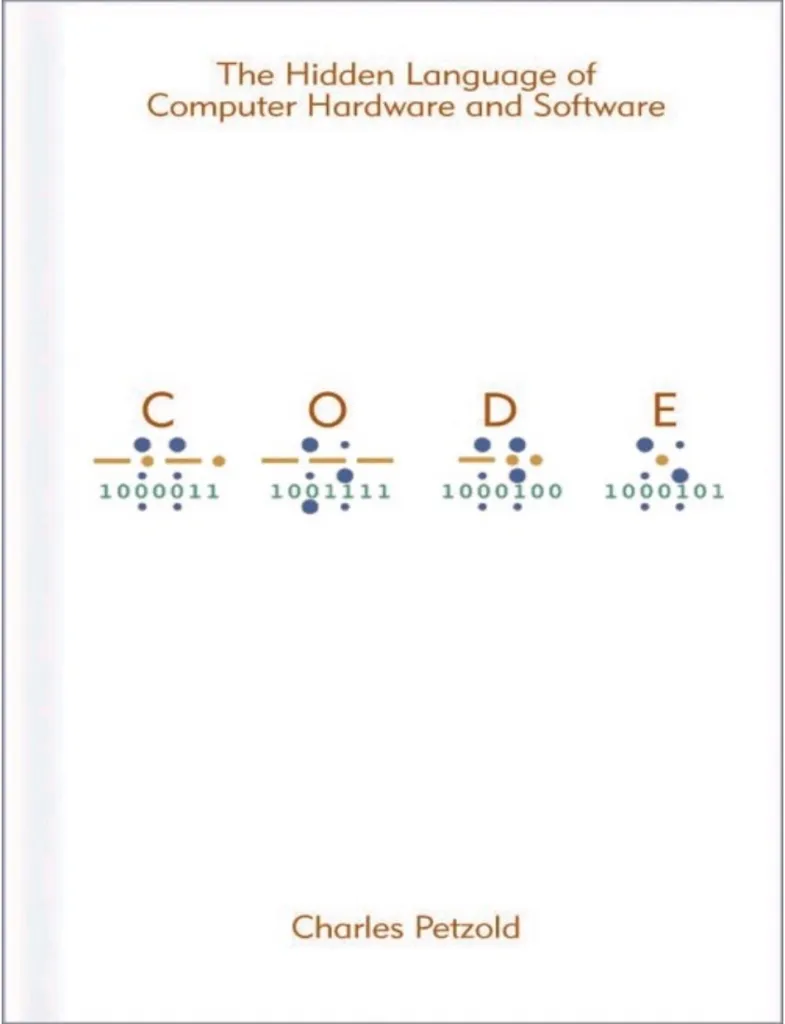
6. CODE: The Hidden Language of Computer Hardware and Software
Writer: Charles Petzold
Download (free): bobcarp
Quote: “Programming in machine code is like eating with a toothpick.”
What it’s about: „What do flashlights, the British invasion, black cats, and seesaws have to do with computers? In CODE, they show us the ingenious ways we manipulate language and invent new means of communicating with each other. And through CODE, we see how this ingenuity and our very human compulsion to communicate have driven the technological innovations of the past two centuries.
Using everyday objects and familiar language systems such as Braille and Morse code, author Charles Petzold weaves an illuminating narrative for anyone who’s ever wondered about the secret inner life of computers and other smart machines.”
Why we recommend it: This book explains what happens in a computer in the background when a code is run. We agree with amazon that: „it’s a cleverly illustrated and eminently comprehensible story — and along the way, you’ll discover you’ve gained a real context for understanding today’s world of PCs, digital media, and the Internet. No matter what your level of technical savvy, CODE will charm you — and perhaps even awaken the technophile within.”
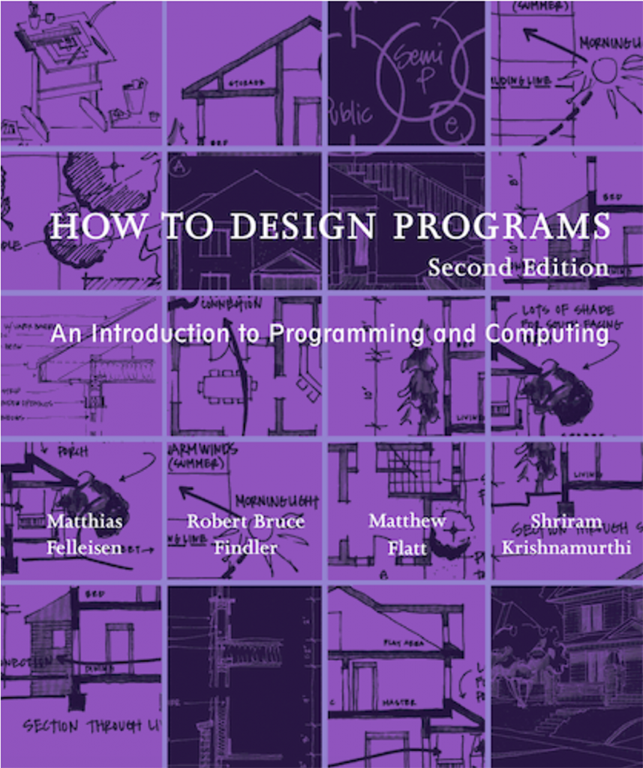
7. How to Design Programs: An Introduction to Programming and Computing
Writers: Matthias Felleisen, Robert Bruce Findler, Matthew Flatt, Shriram Krishnamurthi
Download (free): ht
Quote: “A good programmer designs programs. A bad programmer tinkers until the program seems to work.”
What it’s about: „This introduction to programming places computer science in the core of a liberal arts education. Unlike other introductory books, it focuses on the program design process. This approach fosters a variety of skills ― critical reading, analytical thinking, creative synthesis, and attention to detail ― that are important for everyone, not just future computer programmers.
The book exposes readers to two fundamentally new ideas.
First, it presents program design guidelines that show the reader how to analyze a problem statement; how to formulate concise goals; how to make up examples; how to develop an outline of the solution, based on the analysis; how to finish the program; and how to test. Each step produces a well-defined intermediate product.
Second, the book comes with a novel programming environment, the first one explicitly designed for beginners. The environment grows with the readers as they master the material in the book until it supports a full-fledged language for the whole spectrum of programming tasks.”
Why we recommend it: This book will not teach you a real-life programming language, but it will teach you a language designed to help you learn programming. And most importantly it will teach you how to do programming well. Don’t worry about building an environment for the tasks included, you’ll easily solve that, too. And in the meanwhile you will learn a lot about the basics of coding done well from this timeless book.
8. Head First Design Patterns
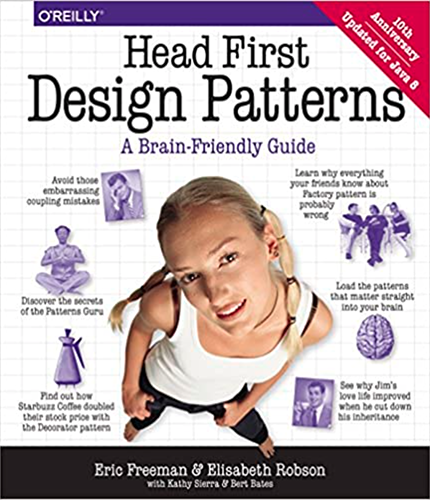
Writers: Eric Freeman, Elisabeth Robson, Bert Bates, Kathy Sierra
Download (free): pdfdrive
Quote: “Wouldn’t it be dreamy if there was a design patterns book that was more fun than going to the dentist, and more revealing than an IRS form? It’s probably just a fantasy…”
What it’s about: „At any given moment, someone struggles with the same software design problems you have. And, chances are, someone else has already solved your problem. Head First Design Patterns shows you the tried-and-true, road-tested patterns used by developers to create functional, elegant, reusable, and flexible software. By the time you finish this book, you’ll be able to take advantage of the best design practices and experiences of those who have fought the beast of software design and triumphed.
We think your time is too valuable to spend struggling with new concepts. Using the latest research in cognitive science and learning theory to craft a multi-sensory learning experience, Head First Design Patterns uses a visually rich format designed for the way your brain works, not a text-heavy approach that puts you to sleep.”
Why we recommend it: We believe it’s difficult, if not impossible to learn programming from a book. That’s why we do what we do at Codecool: help you learn coding with confidence, supported by our pro mentors, in agile teams, working on real life projects for some fun but intensive months. Now, this book is as close as it gets to a good coding book. If you feel like learning industry best practices building on the basics of programming from a book, we suggest you try this one.
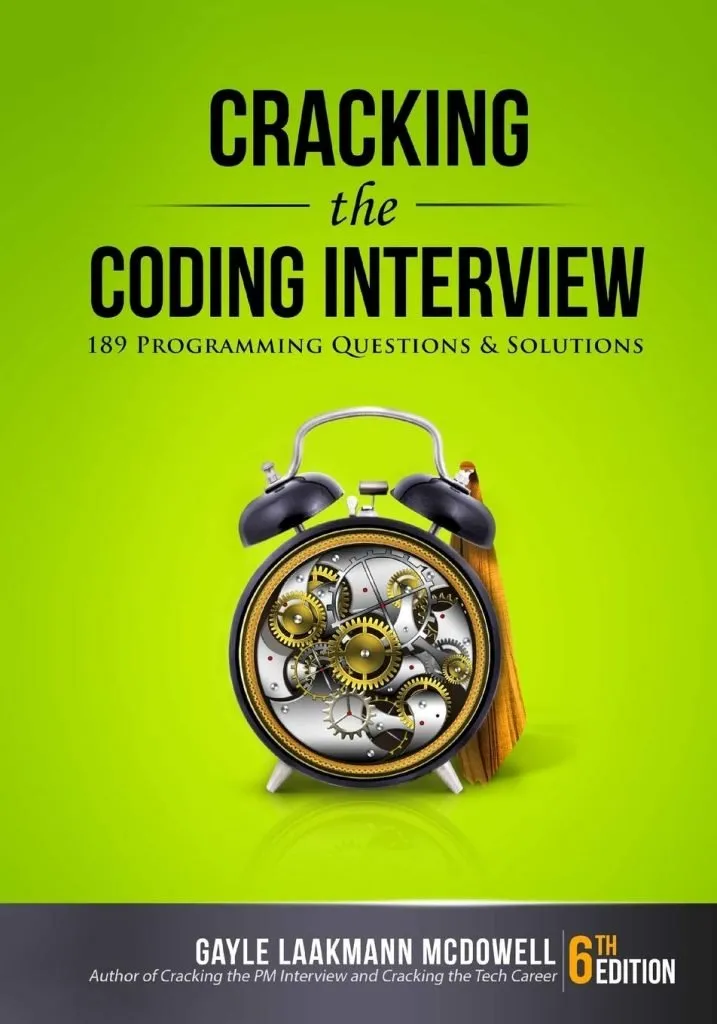
9. Cracking the Coding Interview: 189 Programming Questions and Solutions
Writer: Gayle Laakmann McDowell
Download (free): pdfdrive
Quote: “I am not a recruiter. I am a software engineer. And as such, I know what it’s like to be asked to whip up brilliant algorithms on the spot and then write flawless code on a whiteboard. I know because I’ve been asked to do the same thing in interviews at Google, Microsoft, Apple, and Amazon, among other companies.”
What it’s about: The book covers 189 programming interview questions, ranging from the basics to the trickiest algorithm problems. It provides a walk-through of how to derive each solution, so that you can learn how to get there yourself, and hints on how to solve each question, just like what you would get in a real interview.
There are five proven strategies described inside to tackle algorithm questions, so that you can solve questions you haven’t seen. It extensively covers essential topics, such as big O time, data structures, and core algorithms.
It also gives you a behind the scenes look at how top companies like Google and Facebook hire developers. And it introduces you working techniques to prepare for and ace the soft side of the interview: the behavioral questions.
Why we recommend it: The interview questions in the book are real, they are not made up as textbook examples. They help you prepare for real interviews at tech companies.
The book helps you understand how to uncover the hints and hidden details in a question, how to break down a problem into smaller bits to tackle, what to do when you are stuck, how to approach computer science concepts, and how to practice questions for your interview. We believe it’s a truly valuable read, if you are serious about your tech career plans and want to get ready for an interview.